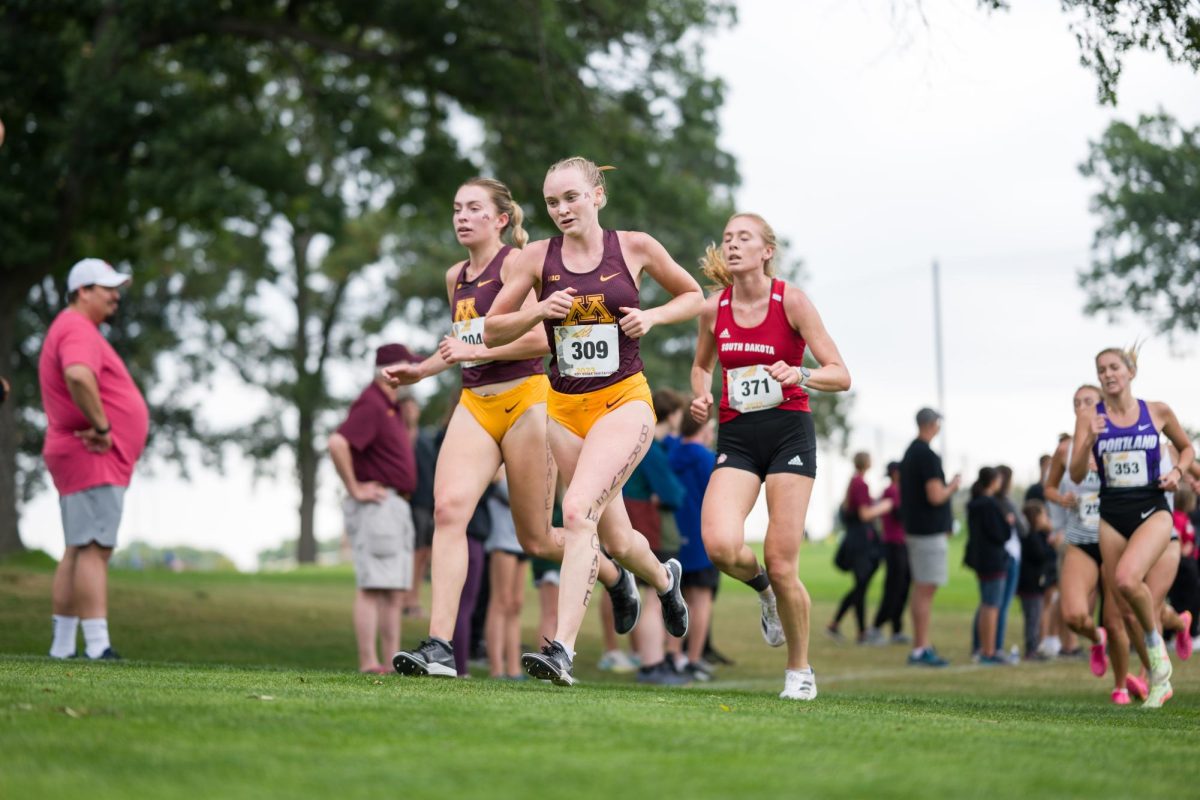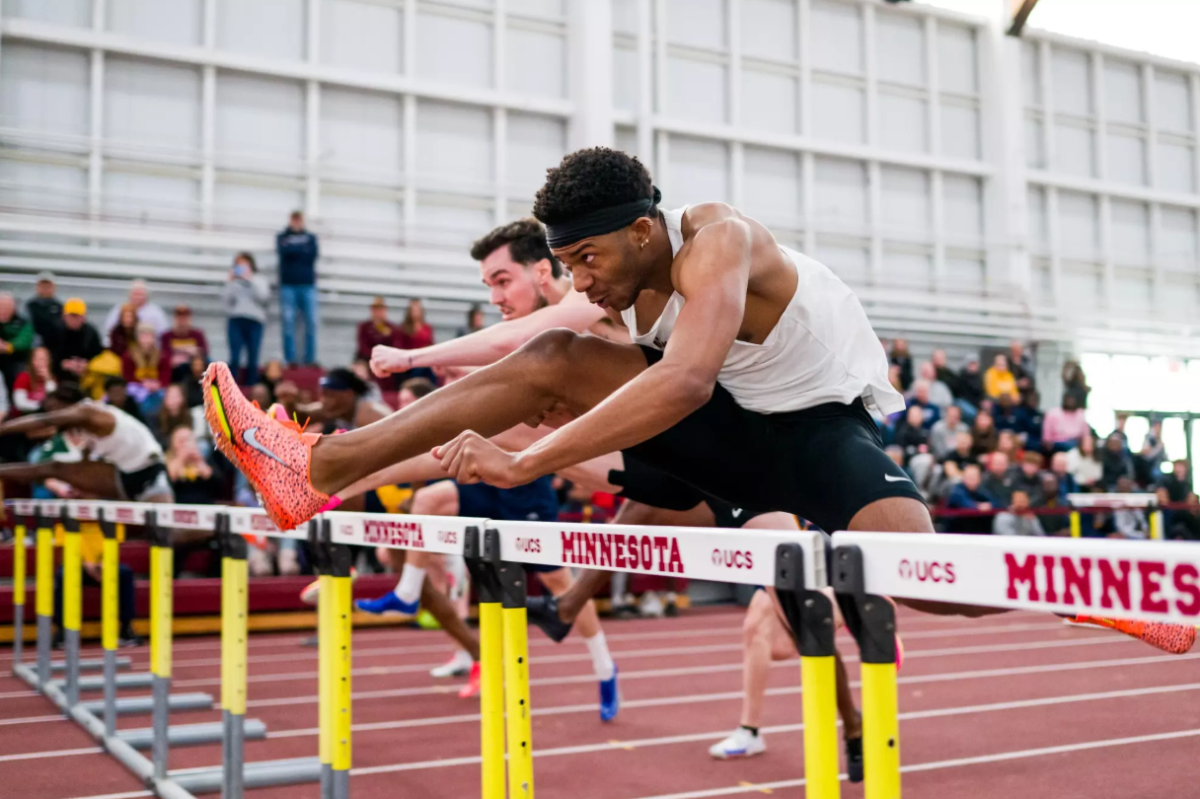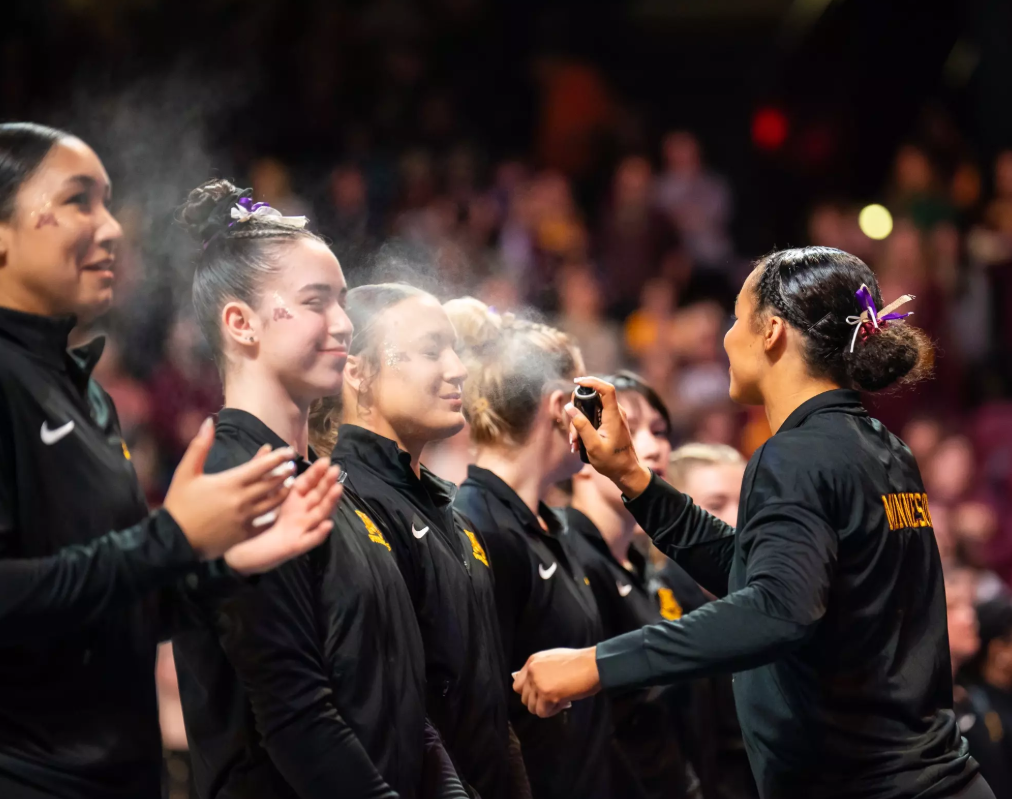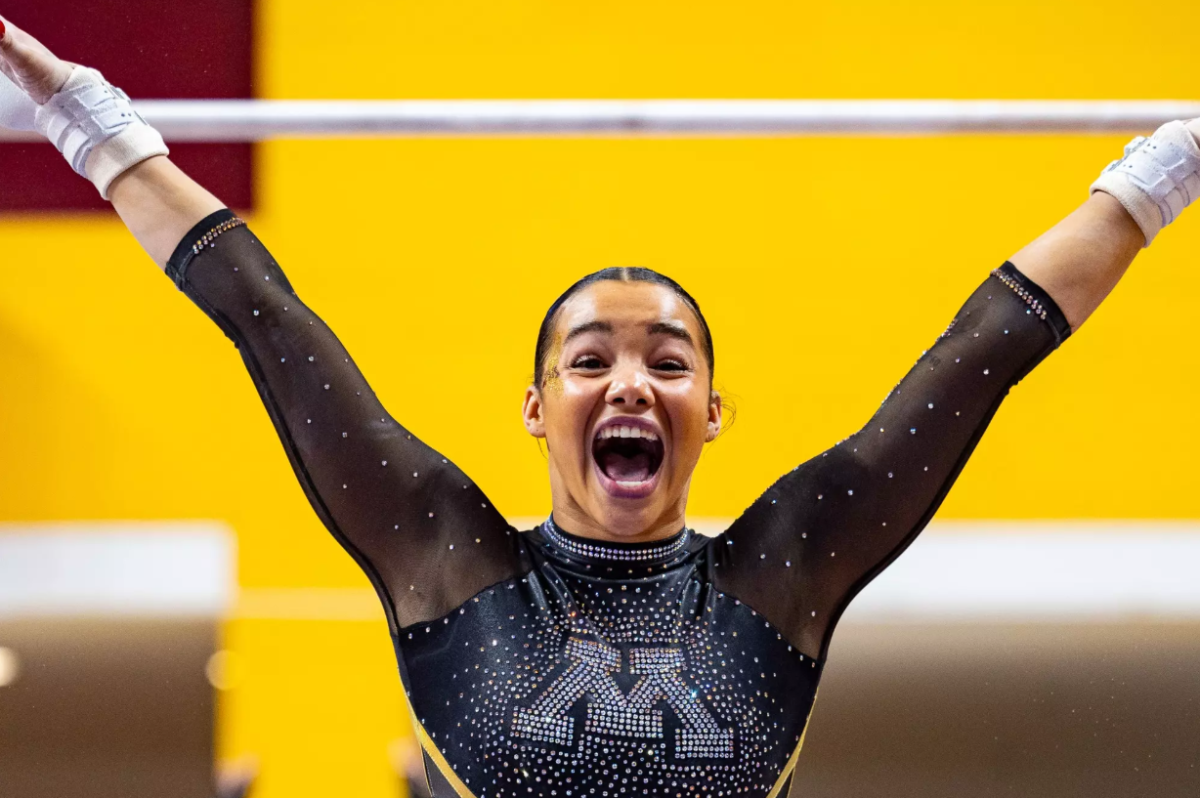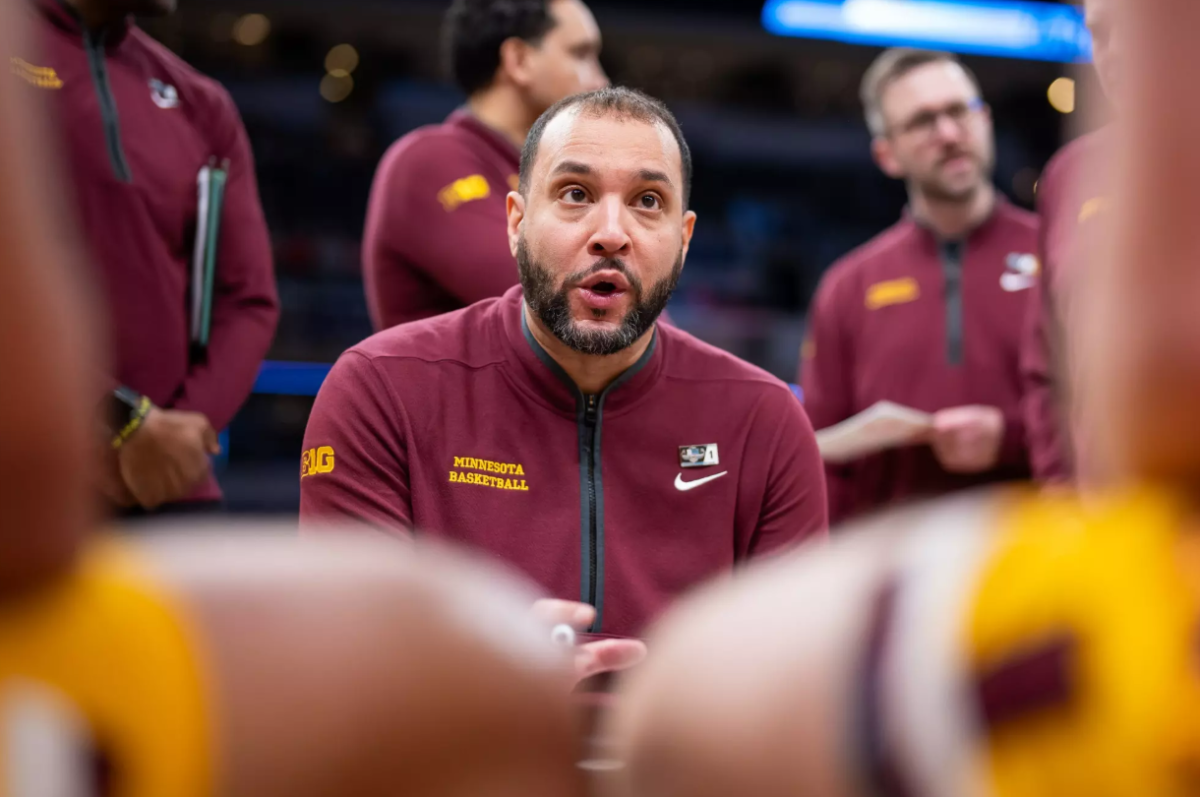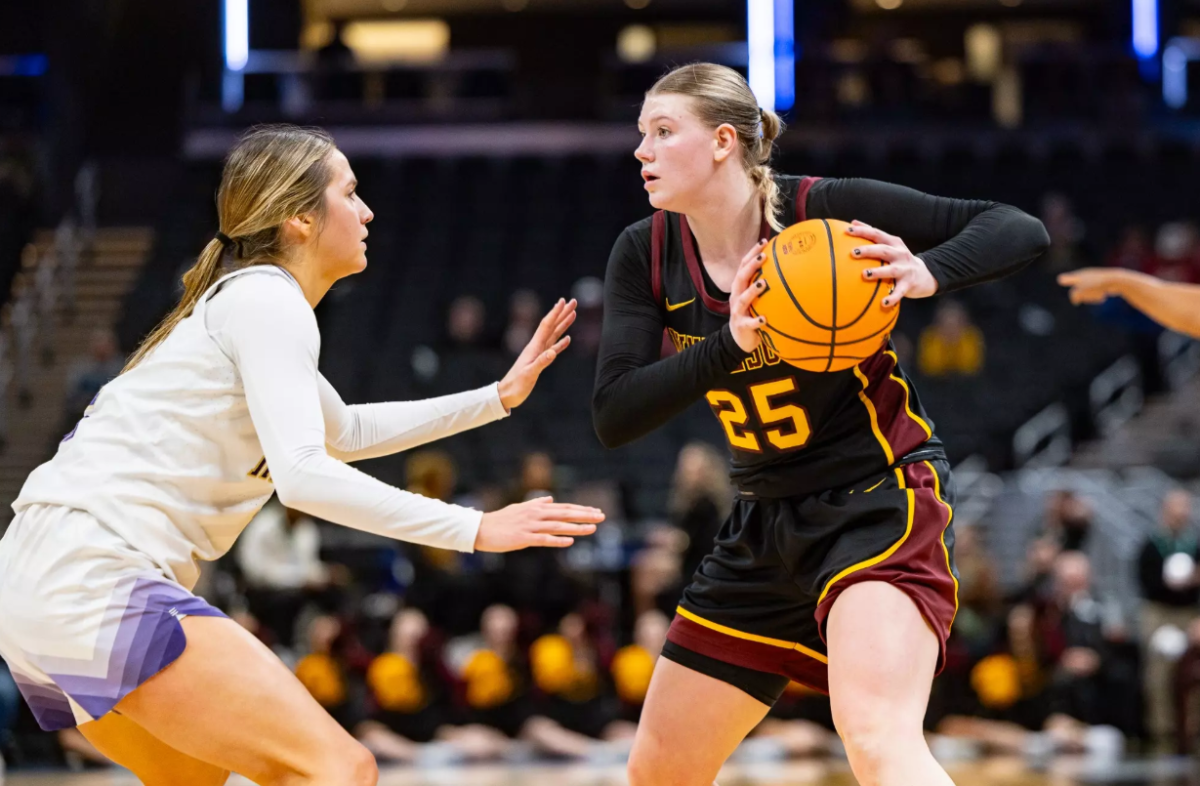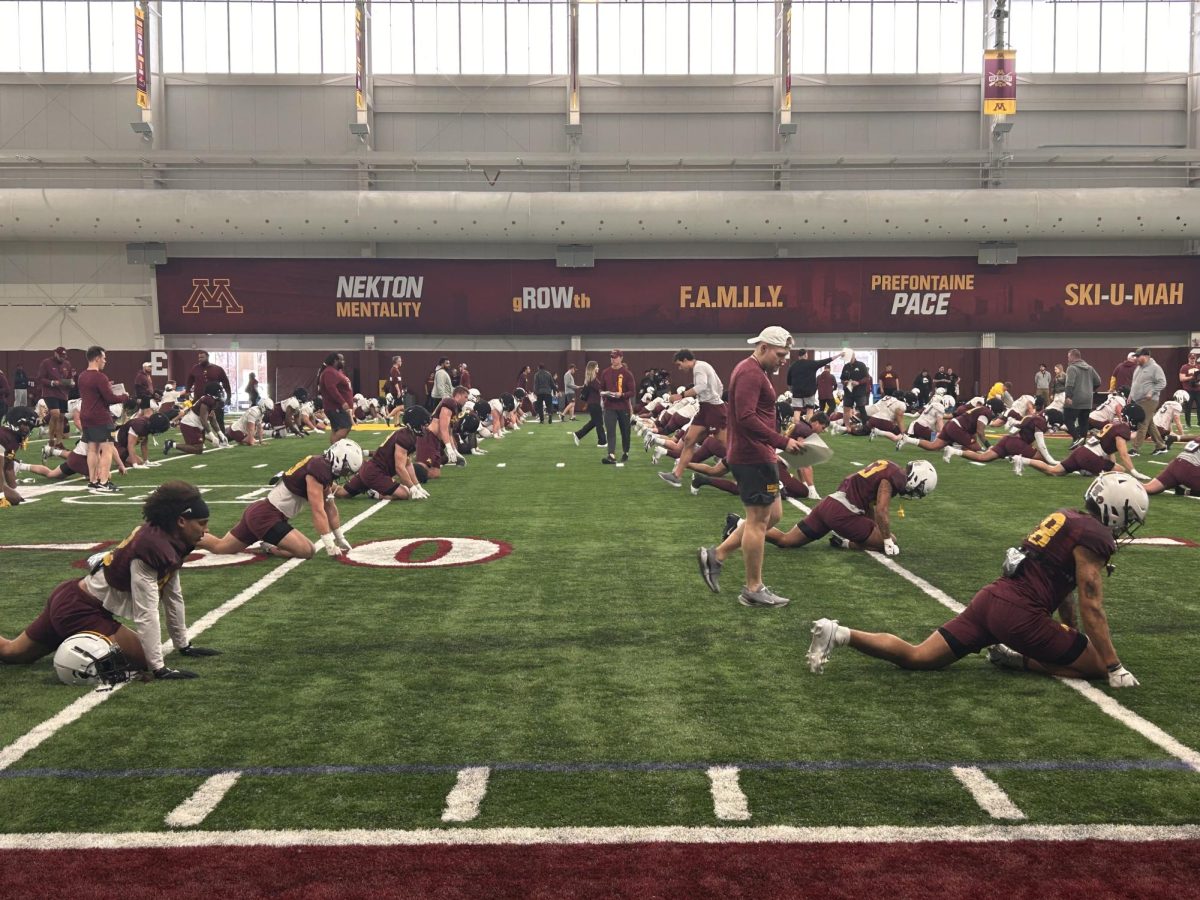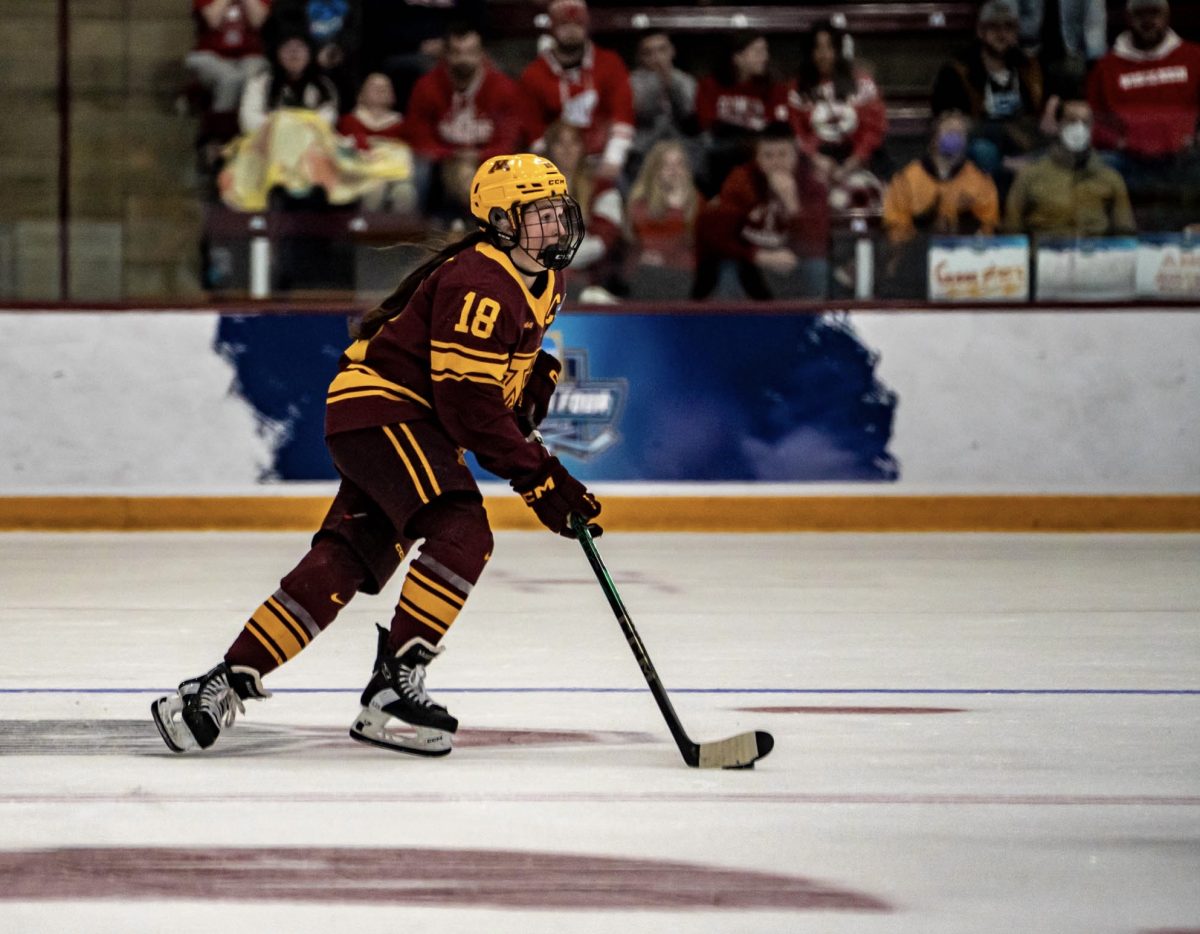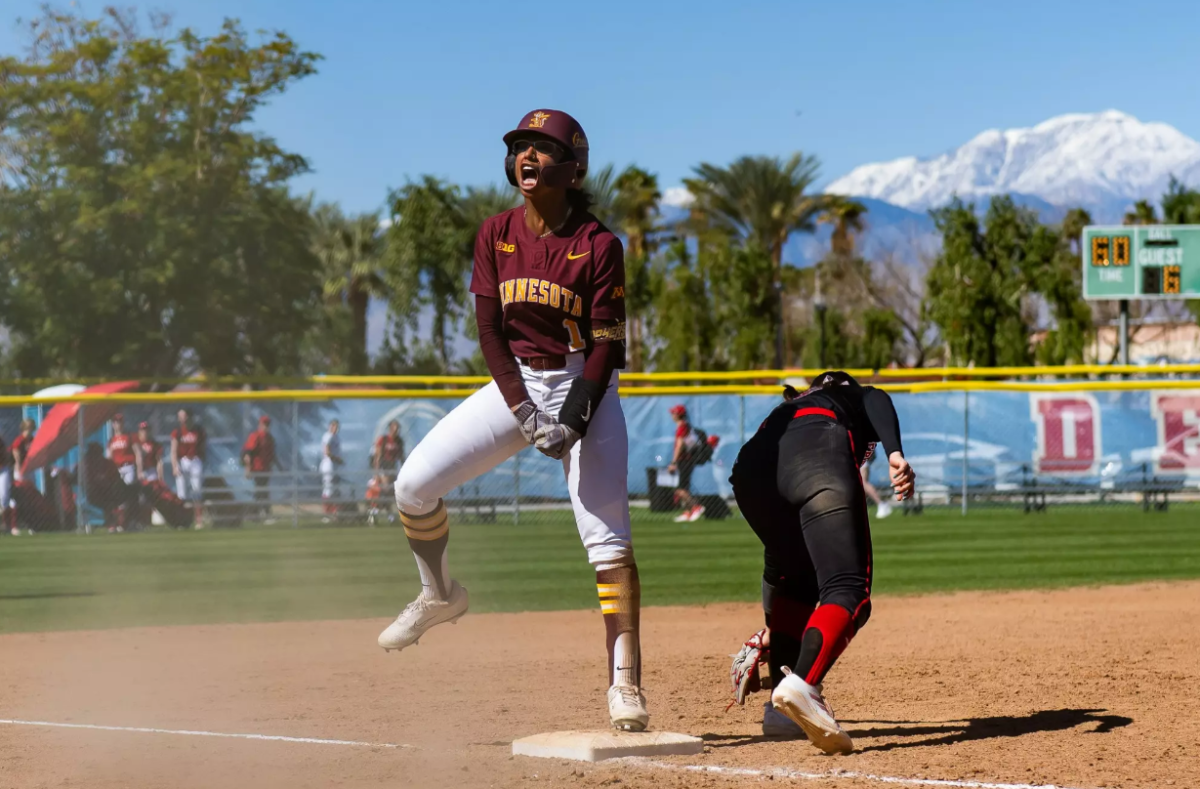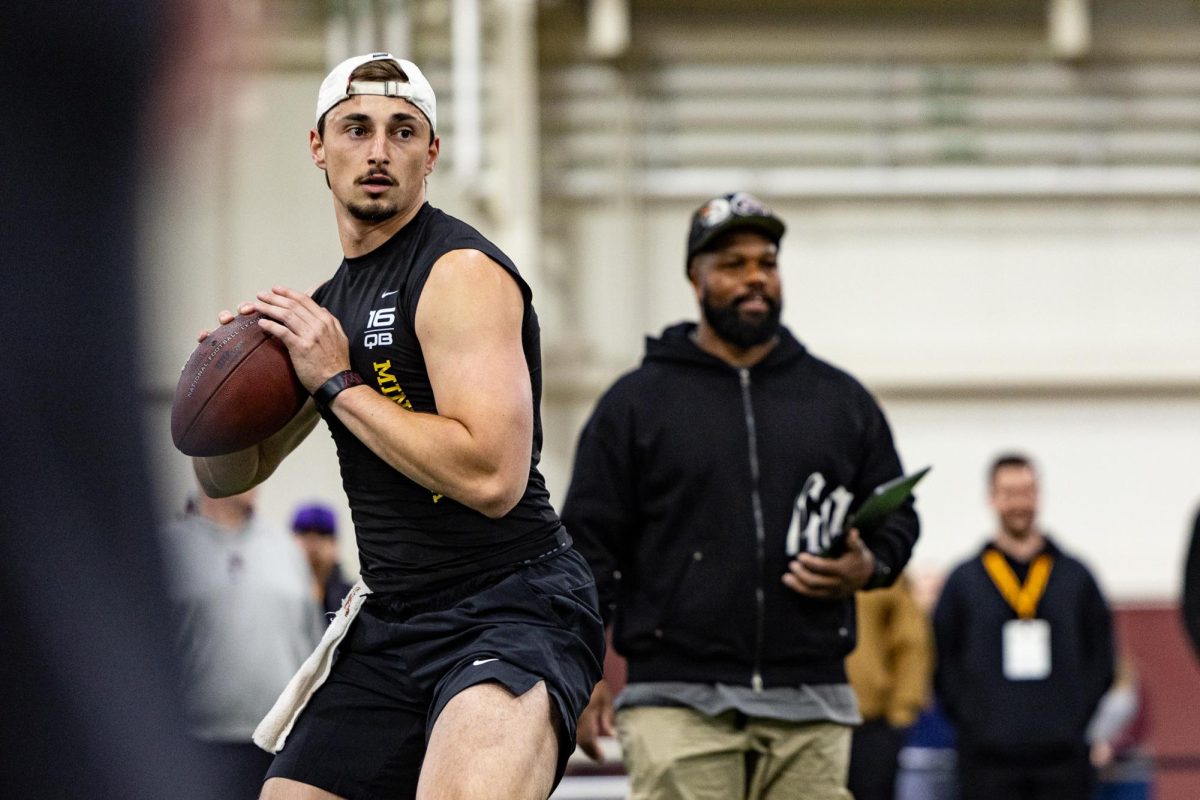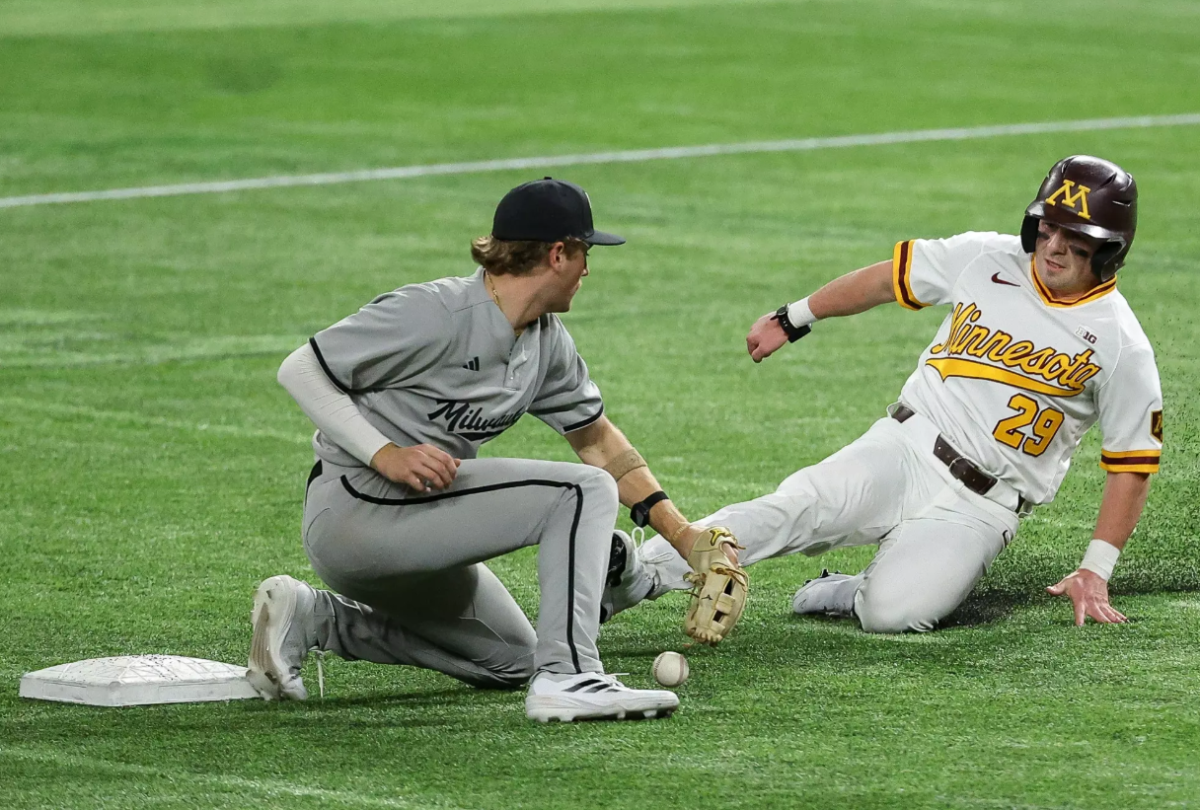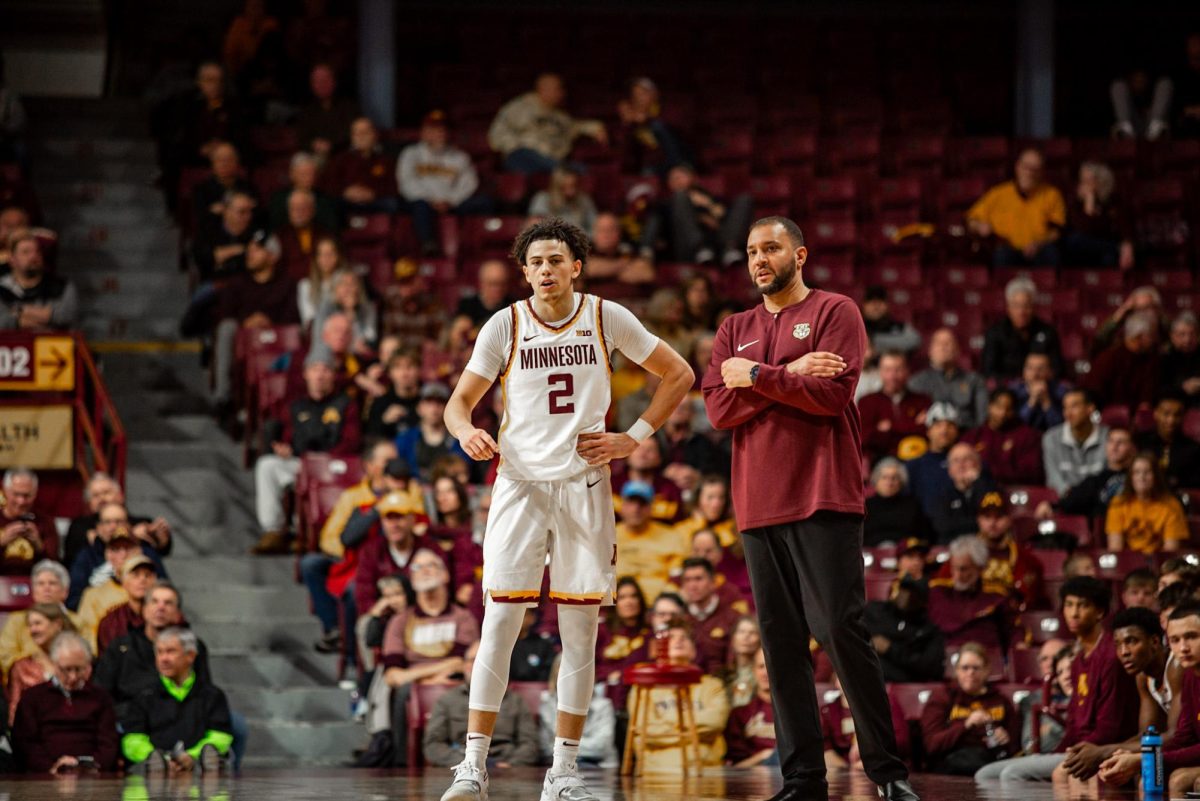As the cross country season ended, the Gophers men’s and women’s teams reflected on how the season went. Unfortunately, neither team made the national championships this year.
At the NCAA Division I Midwest Region Championships, the women’s team placed fourth overall while the men placed 14th.
This year was proven to be one of rebuilding. Though the women placed fourth, they did not earn enough points throughout the season to make it to the national competition.
Scores are determined by the top five finishers per team. The women ran a 6k and the team finished with a total time of 1:47:36 with an average time of 21:31 per race.
Gophers head coach Sarah Hopkins said there were a few reasons the team did not quite reach their goals. For the women, the team was extremely close.
“They’re a really close-knit group, which is great,” Hopkins said. “But sometimes when you’re a really close-knit group, it’s hard to be really competitive with each other, because you just want to be together and help each other and support each other.”
Cross country is a team sport, however, there are still many levels of individuality that are important. Halfway through the season, Hopkins made adjustments to the team.
“Sometimes you have to push the envelope and you have to want and run faster than somebody else,” Hopkins said. “Sometimes, you don’t want to make somebody else feel bad and so I think we kind of had a little too much nice to start. We need to find that balance of supporting each other but also being able to push and run as hard. I think that was something we figured out mid-season and once we made that adjustment, things got a lot better.”
At the regional championship, Erin Reidy finished first for Minnesota and 29th overall. With a time of 21:25.3, Reidy beat out teammate Ali Weimer by one second. Weimer finished with a time of 21:26.3, good for 30th.
Reidy said she struggled with consistency this season.
“I think it was definitely a learning year,” Reidy said. “There were a lot of un-running-related issues that happened on our team, including myself. I ended up with a concussion and I had some heart issues over the summer, so it’s definitely a hard thing to try to come back from and, for me, consistency is a big thing that goes well with my training and I didn’t have that.”
Despite these struggles, the team ran well together. The top five runners finished with a rare gap of four seconds between each other.
The men’s team had a building year as well. The team is exceptionally young, with 11 freshmen and redshirt freshmen out of the 16 runners rostered.
All of the athletes on the men’s team ran a 10k course. Together, they finished with a total time of 2:41:04 with a time of 32:12 on average.
“It was more of just a young group that was training at a really high level,” Hopkins said. “ I think because they were just young, it’s gonna take a lot of time for that training to come to fruition on race day.”
Minnesota’s top finisher, Emmet Anderson, finished 48th overall with a time of 31:45.8. His standing improved from the previous season, where he finished in 52nd place at the NCAA Midwest Regionals.
Anderson’s perspective on the season focused on building fitness and long-term goals, rather than just this year’s results.
“I think all the important things that I could control and outcomes I could have hoped for happened, meaning that I built the fitness that I wanted to and I think that a lot of other guys on the team felt similarly,” Anderson said. “The team was kind of plagued with sickness, so maybe we didn’t get the results that we wanted.”
Anderson has been consistent this season and has come into a front-runner position all season. He was a dependable runner for Minnesota on the front end of the team.
“I do love the team aspect of cross,” Anderson said. “After every race, whether you did good or bad, it kind of feels like you guys went through a little battle together.”
Overall, the season may not have ended with a nationals appearance but the lessons learned, adjustments made and resilience displayed by the teams set a strong foundation for future success. As they face tougher competition in the upcoming seasons, the experience gained this year will prove invaluable in shaping a more competitive and determined cross country program.
Next season, competition will be tougher with more teams joining the conference, two of which are considered some of the best programs in the country in both men’s and women’s cross country. The University of Oregon and the University of Washington women’s teams finished the season 21st and 17th in the NCAA rankings while the men’s finished 10th and 23rd overall, respectively.


